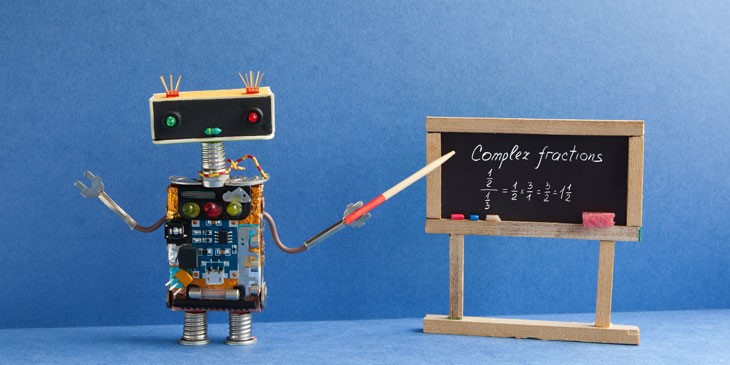Are robots the teachers of the future?
A global shortage of teachers in some of the most disadvantaged parts of the world could soon be overcome by the creation of digital teachers.
Take Will. The New Zealand teacher – an artificially intelligent digital avatar with a human face (and head) – takes primary school students through their paces on energy use. Created by the Auckland-based energy company Vector in partnership with AI company Soul Machines, Will interacts with students to deliver content and provides questions and multiple choice answers to test student understanding at the end of each unit.
Technology and the future of education
Will is the first of a new breed of teachers that the DaVinci Institute founder Thomas Frey argues will become more intuitive and responsive to the increasing complexities of the classroom as the technology evolves. In fact, he thinks that robot teachers will be the norm in schools by 2030.
Frey, a former IBM executive, told Business Insider: “I’ve been predicting by 2030 the largest company on the internet will be an education-based company that we haven’t heard of yet.”
He’s not alone. British education expert Sir Anthony Sheldon went a step further to say that teachers would be replaced by robots by 2027 and argued that inspirational teachers of the future will be artificially intelligent. Technology, he said “will open up the possibility of an Eton or Wellington education for all”.
Responsive technology
Technology could also help UNESCO reach its ambitious goal of ensuring every child across the globe can meet minimum proficiency in reading and numeracy.
Sheldon, the head of the prestigious Wellington School, told the UK Independent that classroom technology offered great promise that was beyond anything seen in the Industrial Revolution or since.
“These are adaptive machines that adapt to individuals. They will listen to the voices of the learners, read their faces and study them in the way gifted teachers study their students,” he said. “We're looking at screens which are listening to the voice of the student and reading the face of the student.”
AI is already playing a critical role in partnering with teachers to meet the diverse learning needs of students. For example, catering for the individual needs of 30 students in the classroom is a challenge. AI can help personalise learning design so that each student has an appropriate level of challenge.
We’ll still need teachers
The idea that teachers will somehow be replaceable by technology is slowly gaining traction.
But not so fast, says Alex Beard. The former British school teacher embarked on a global tour of the technology behemoths at Google and ed-tech think tanks that were using data and AI to make inroads into the classrooms. The result was Natural Born Learners, which reaffirmed the role of teachers.
Central to Beard’s argument was the need to recapture the 2,000-year-old truth about learning – that it is difficult. And that’s the point. Teachers and technology will partner to deliver better student outcomes and the shape of that partnership will evolve with the technology.



